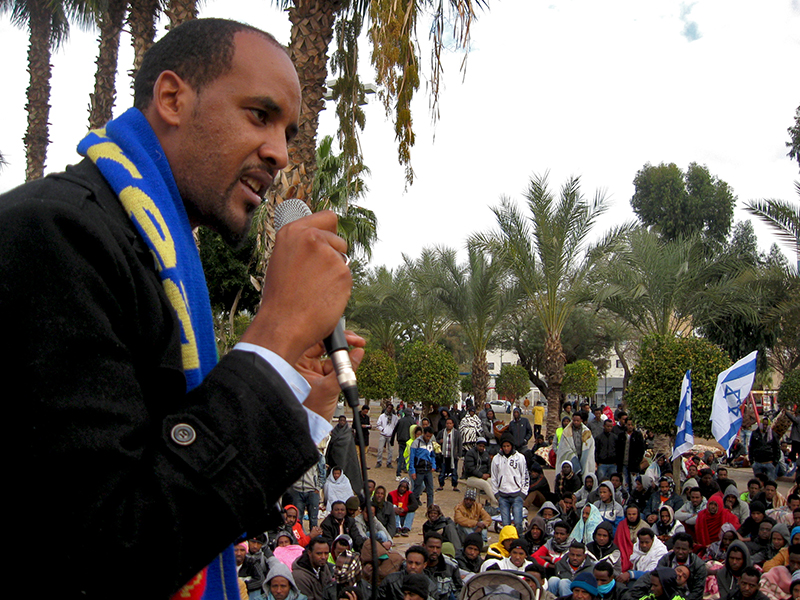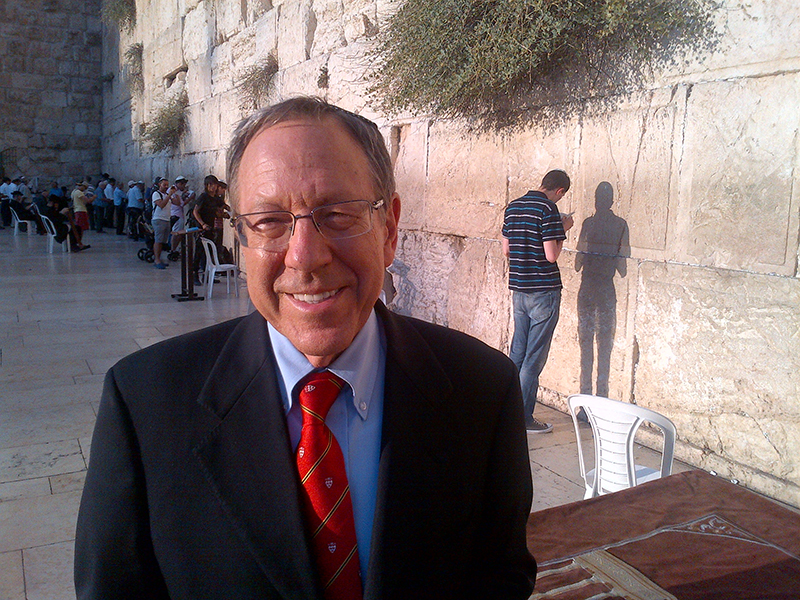Over the past few years, Canada has taken in more than 1,000 Eritrean and Sudanese refugees – from Israel. But Canadian Jewish organizations would like to see this country do more.
On Jan. 31, the Centre for Israel and Jewish Affairs (CIJA) issued a statement calling on the government of Canada to expedite the resettlement of African asylum seekers.
“For several months, CIJA has been engaging with the government of Canada on the resettlement of African asylum seekers from Israel. This is a global challenge requiring a global solution, and Canada has taken a lead role in sharing the international responsibility of resettlement,” wrote CEO Shimon Fogel in a statement.
The organization also called on the government to “expand the capacity of the Canadian embassy in Israel to process the resettlement of more of these asylum seekers in Canada. There are many Canadian groups and organizations, including JIAS Toronto, in our community, who are ready to help.”
CIJA also encouraged members of the Jewish community to lobby the minister of immigration, refugees and citizenship on the issue.
READ: Q&A TAMARA NEWMAN: LOOKING OUT FOR ISRAEL’S ASYLUM SEEKERS
CIJA’s statement is part of a growing outcry from Canadian Jews who would like something done to ease the plight of African asylum seekers in Israel. Not all their advocacy, however, is aimed at Canada.
On Jan. 15, a group of 23 Canadian rabbis representing all religious streams joined with the Toronto Board of Rabbis, CHAI: Canadians Helping Asylum Seekers in Israel and Right Now: Advocates for Asylum Seekers in Israel, to deliver a letter to the Israeli consulate in Toronto, calling on the government of Israel to reverse its plan to deport African asylum seekers and to work with Canada and other countries to find another solution.
Meanwhile, in Ottawa, Rabbi Jonathan Malino and Rabbi Elizabeth Bolton of the Or Haneshamah congregation delivered a letter to the Israeli embassy that originated with the American Jewish groups T’ruah: The Rabbinic Call for Human Rights, HIAS, the New Israel Fund and Right Now, and which was signed by 750 rabbis. That letter argues that as a country founded by refugees, Israel should not deport those who are seeking asylum.
There are currently around 38,000 African asylum seekers in Israel, mostly from the Darfur region of Sudan and Eritrea, a country in east Africa.
Most sought refuge in Israel between 2006 and 2012, after fleeing genocide in Sudan and oppressive conditions in Eritrea. Israel constructed a wall on its border with the Sinai to stop the flow of refugees and in subsequent years, political leaders have termed them “infiltrators” and “economic migrants.” Some politicians have also suggested that many of them are criminals and one even called them a cancer on Israeli society.

The Israeli government has been offering asylum seekers $3,500 in cash and a ticket to an African country, widely believed to be Rwanda, which has agreed to take them in. The alternative is to face incarceration in a holding camp in southern Israel.
But there have been signs over the past few weeks that this policy could change. Irwin Cotler, former minister of justice and attorney general of Canada, recently returned from Israel, where he met with Israeli Prime Minister Benjamin Netanyahu, Justice Minister Ayelet Shaked, 20 members of the Knesset and others.
Cotler told The CJN that Israeli policy appears to be shifting to one that will offer “a temporary residential protected status” to Darfurians.
Vulnerable Eritreans – including women, children and families – may also be allowed to stay. But this would leave a sizable cohort of single men between the ages of 20 and 40 facing an uncertain future.
In his meetings, Cotler was told that the young Eritrean men are seen as army deserters. Cotler said he responded by noting that army service in Eritrea amounts to virtual slavery, and that there is a reason why Eritrea is referred to as the North Korea of Africa.

Cotler said he made the argument that Israel must implement a proper refugee determination system, so that each asylum seeker can have his or her case adjudicated promptly and fairly.
Meanwhile, Elliot Vaisrub Glassenberg, an oleh who co-chairs Right Now, suggested that Canadians can help Israel deal with the asylum seekers who don’t want to return to Africa.
Canada has an effective program of private sponsorships of refugees, and he urged Canadian Jews to participate in it. That won’t just help the asylum seekers, it will help Israel, as well, he said during a visit to Toronto.
As for those who wish to remain in Israel, Glassenberg said the country should treat them with dignity and adopt a system to address their cases.
As a signatory to the 1951 Refugee Convention, Israel has a duty to protect refugees in its territory and “that would mean assessing the asylum requests of all asylum seekers currently in Israel, in an objective, transparent and just manner, and granting protection to those who are deserving,” he said.






